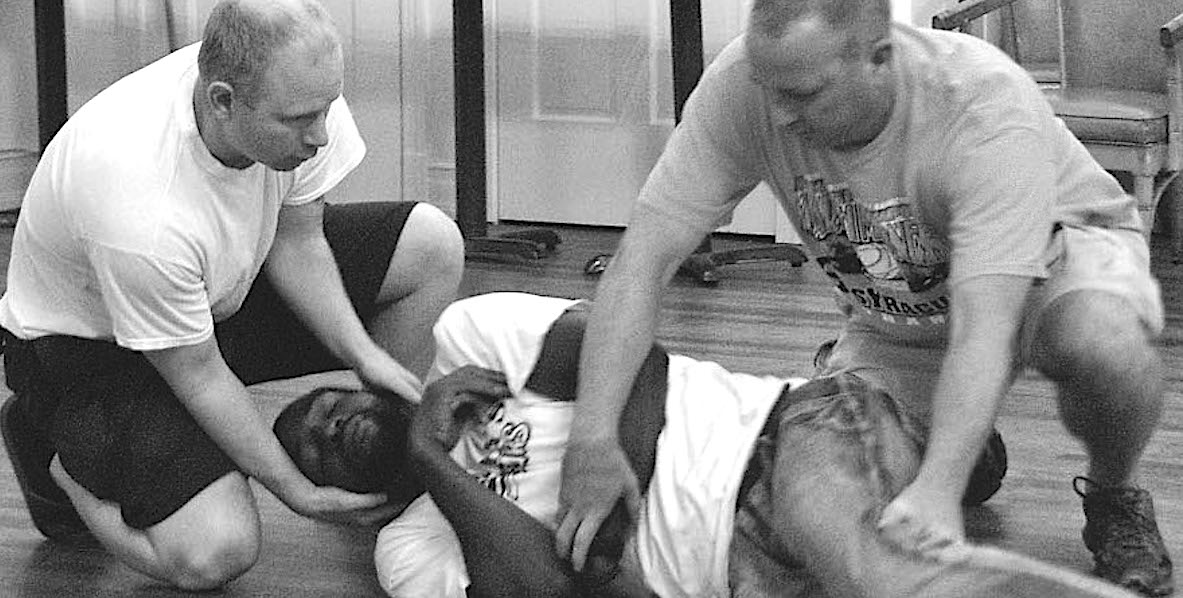Paige Price, Philadelphia Theater Company’s producing artistic director, is ready to put a spotlight on one of her company’s most steadfast rescuers. Literally. Tonight that man takes his star turn on the stage of the Suzanne Roberts Theater during Play Brawl!, a new concept for its annual fundraiser.

Prefer the audio version of this story? Listen to this article on CitizenCast below:
Audio Player
“David Cohen is doing a scene from A Few Good Men, the ‘You can’t handle the truth’ scene,” says Price. Yes, that David Cohen, Comcast’s senior executive vice president, the once right-hand man to former Mayor Ed Rendell, and arguably the number-one power broker in town.
He’s going onstage, under the blinding lights in front of hundreds of people, Attend Play BrawlDo Something
“Let me put it this way,” says Geoff Kahn, PTC board member and chair of Ballard Spahr’s litigation department, about Cohen’s rendition of this iconic scene. “I’ve known David since we were first-year associates at Ballard, and I’ve almost never seen him anxious in any setting, but I do detect a greater degree of anxiety in regard to this Friday than when he’s been before Congress or interacted with [U.S.] presidents. This is a horse of a different color.” There’s a pause of stifled delight from his longtime friend, and then Kahn adds, “but, I’m confident he will rise to the occasion.”
Paige Price is gambling on it, too. Price is new to town, new to how Philly normally works—slowly—and seemingly unafraid. Already, she has made quite a few calculated gambles since her arrival at PTC only a year ago ,when she replaced Sara Garonzik, who stepped down after 35 seasons. Most dramatically, Price canceled this past 2017-18 season.
 “You probably can’t print this,” says Price, the polished, blonde 53-year-old, with her refined and modulated voice as she leans forward conspiratorially. “But, it was sort of a ‘fuck it’ moment. It was like, ‘Let’s break it and rebuild it.’ A lot rides on this for me personally as a new administrator, only having done this job once before at Theatre Aspen. But I have good instincts. I talk to a lot of people. I don’t do anything by myself. But ultimately, I take responsibility for looking at something and thinking it is time for a complete reboot.”
“You probably can’t print this,” says Price, the polished, blonde 53-year-old, with her refined and modulated voice as she leans forward conspiratorially. “But, it was sort of a ‘fuck it’ moment. It was like, ‘Let’s break it and rebuild it.’ A lot rides on this for me personally as a new administrator, only having done this job once before at Theatre Aspen. But I have good instincts. I talk to a lot of people. I don’t do anything by myself. But ultimately, I take responsibility for looking at something and thinking it is time for a complete reboot.”
When the announcement was made last year that Philadelphia Theater Company was canceling its upcoming 2017/18 season, it was met with a gasp heard ‘round the Philly theater world. Dropping one show? Sure. But wiping out an entire season? That got people’s attention. After all, this is the company with enough national cred it could brag about being home to premieres by playwrights Terrence McNally, Christopher Durang, David Mamet, Kenneth Lonergan, Tina Howe, and August Wilson. A-list actors worked with PTC through the years including Anna Deavere Smith, Richard Thomas, Zoe Caldwell, Audra McDonald, Robert Sean Leonard, and Haley Joel Osment.
“That’s pretty major not to produce a season,” agrees Price, though the 365-seat Suzanne Roberts Theater remained open as a venue and was booked for lectures, concerts, and touring shows. “I talked to our board before we canceled the season and they were surprised, but at that juncture they were open to a radical change. I had warned them when they were interviewing me that I didn’t think safe was going to be the thing that saved the company — programmatically or organizationally.”
Radical thinking was what the PTC’s search committee had sought.
“The company had been through so many ups and downs but had never canceled,” says Price. “This was pretty radical. It was not my favorite day, but I truly believe that there wasn’t a choice. We could not continue the way we were operating.”
“In addition to Paige’s extensive theatrical experience onstage and behind the scenes, she could lead an organization that was in transition,” says Gerald “Jerry” Reisenbach, PTC board member, former board chair, and senior partner at Cozen O’Connor. “She brought a whole new perspective not being from Philadelphia. She’d spent her life in the theater, had been an actor [on Broadway], was first vice president at Actors’ Equity, so she understood the performer and business sides. She’d done fundraising in Aspen, and not only wasn’t afraid of fundraising, but was very good at it.”
This wasn’t an unreasonable consideration. Things had been rocky for PTC for a while since it had opened its multi-million-dollar KieranTimberlake-designed home on the Avenue of the Arts in October 2007. That was the year before the global financial crisis. The building, with a price tag around $20 million, was sleek, state of the art and patrons were delighted. But when the 2008 recession hit, some PTC donor pledges were retracted. Fundraising for arts organizations everywhere became an endeavor with scant rewards.
PTC experienced a series of financial blows in the years that followed. An accumulation of missed mortgage payments beginning in 2012 led to a bank foreclosure by TD Bank in 2014. The company briefly lost its license to solicit charitable donations. Never a good thing for an arts organization. Things improved by 2015 with the intervention of board member and business guru David Cohen. He helped PTC craft a new deal and buy its building back from TD Bank for $5 million.
“What seemed evident,” says Price when she reviewed the company’s funding By Sarah JordanRead More
Like any arts organization, there’s a fine line between financial sickness and health. (Having the Roberts family, of the Comcast Cable empire, as benefactors is good insurance!) When she arrived, Price quickly decided to contract the company and its mission. One senses that Price, for all of her beautiful manners and unshakeable poise, doesn’t waste time or mince words. She describes herself as “ruthlessly transparent.” That easy candor stems from a conviction about what she’s set out to accomplish.
“The best analogy I can give is the company was 43 years old, and it’s like you suddenly wake up and you’re in midlife,” Price says and laughs. “You have to go on a different diet. Your regimen needs to change, even refocusing your values and how you present yourself to the world.”
Despite the 2017/18 season already being in the midst of the planning phase, Price did not see where the revenue would come. “Amy Kaissar, the interim managing director, ran a budget and I think we were going to be in the hole for a million plus,” recalls Price. “I didn’t want my first year to perpetuate any kind of structural deficit. I wanted to dig in, get more information and facts, and figure out why the numbers were down. You only get one fresh start, and I seized it in a very dramatic way.”
About three weeks after Price’s first official day, and having met with the board, major donors and foundations, she convened a staff meeting in PTC’s lobby and broke the news. “They were shocked,” says Price. “The company had been through so many ups and downs but had never canceled. This was pretty radical. It was not my favorite day, but I truly believe that there wasn’t a choice. We could not continue the way we were operating.”
“I’ve known David [Cohen] since we were first-year associates at Ballard,” says Geoff Kahn, PTC board member, “and I’ve almost never seen him anxious in any setting, but I do detect a greater degree of anxiety in regard to this Friday than when he’s been before Congress or interacted with presidents.”
Shortly thereafter came the day of mass layoffs. According to Price, about 35 percent of the staff was let go; the rest moved out of their office space at 215 S. Broad Street and relocated, as she describes, into “the crevices” of Suzanne Roberts Theatre.
Was it rash to cancel this past season or did PTC need someone from outside its immediate theater bubble to take an unbiased, clinical look at the company? It certainly helped that Cohen, already on the board, signed on as board chair after Price’s arrival. He found eight new members to join the board, too. “It had been hard to recruit people because of the perception of disarray and financial difficulties,” says Price. “David gave us a shot of new confidence. They trust that if he’s chosen this as a project, he’s committed to making it viable.”
Price is known as a sort of Turnaround Queen from her 10-year stint with Theatre Aspen. She has the kind of direct, easy familiarity that makes those who meet her think she will be their next best friend. That ability to connect like that is indispensable when it comes to fundraising. At Aspen, Price increased revenues by 127 percent. In 2013, she led a happily productive $2 million capital campaign. Her labor-intensive habit of calling every single donor, whether the amount was $5 or $5,000, began there in Aspen. She also invigorated the sleepy theater town into an award-winning regional theater; she created the Theatre Aspen Apprentice program for college students and birthed the Aspen Theatre Fest that workshops new plays and musicals.
“Paige has taken time to understand our local theater community, and what will and won’t work,” says board member Geoff Kahn. “It’s a thoughtful approach to figure out what PTC’s niche is in the community.” As an outsider and former Broadway actress, Price quickly assessed that the mission the company had built its reputation on — specializing in premieres of new American plays — had become outdated and in need of tweaking.
“The theater landscape here changed as well,” says Price who has spent the last year bingeing on live theater in town to understand the city and its talent pool. She says she’s talked and networked with everyone from patrons to ushers. “There’s a wealth of theater companies here now. The things PTC used to be known for doing are being done by smaller, nimbler companies now who are all interested in new work. We had carved out a niche that is no longer solely available to us.”
Be Part of the Solution
Become a Citizen member.No one wants to grow irrelevant. Price says she’s worked this past year to map a new path forward that reflects and builds a broader community and responds to its interests. She wants the Suzanne Roberts Theater to be a place for the community, a gathering spot. Though PTC didn’t produce any plays this past year, it kept the building open. Solo and cabaret shows were booked. Improv comedy and a holiday princess sing-along concert brought in new faces. Epic Church rents space for Sunday gatherings.
“The more people in the building, the healthier your prospects are,” she says. “People come to your building because they like what you’re doing, so they’ll take risks on other kinds of programming. There are so many things to do in Philadelphia that the more you can drive traffic to your venue the better.”
For PTC’s upcoming season and Price’s first, she’s picked three works, all written by women: Lynn Nottage’s Pulitzer Prize-winning play set in Reading, Pa., Sweat. “It is jam packed with drama so that’s my hook to subscribers saying it’s okay to come back. I love that it has a diverse cast, and it’s about a real community nearby.”; Marsha Norman’s Tony Award-winning musical adapted from Robert James Waller’s book, The Bridges of Madison County. “We moved the musical to the winter. Why not lift your spirits with a beautifully sophisticated ugly-cry musical?”; and finally, Christina Anderson’s How to Catch Creation. “The last show I’m really excited about because it signals the direction PTC is going, which is new stories by new writers.” It’s also a play taken from the Kilroys list (the list started four years ago by a group of Los Angeles playwrights and producers of the most recommended un- and under-produced new plays by female and trans authors of color.) Price has committed to producing one of these every year.
“If I’m really frank, this first season is about balance,” she says. “The real truth is the economics of our building means that we have to shift our model slightly. We can no longer produce a season of four plays. We’re doing three shows with decent-sized casts, and a world premiere. We’re doing a musical with an orchestra, so people who come through the doors next year will get a lot of show for their money.”
As disruptive as Price is willing to be, she also has shrewdly picked a lineup of shows in harmony with the zeitgeist of the times. And heck, everyone loves a good musical. Maybe next year David Cohen can do a number from Rent for Play Brawl!
Does anyone know if Cohen can sing?








